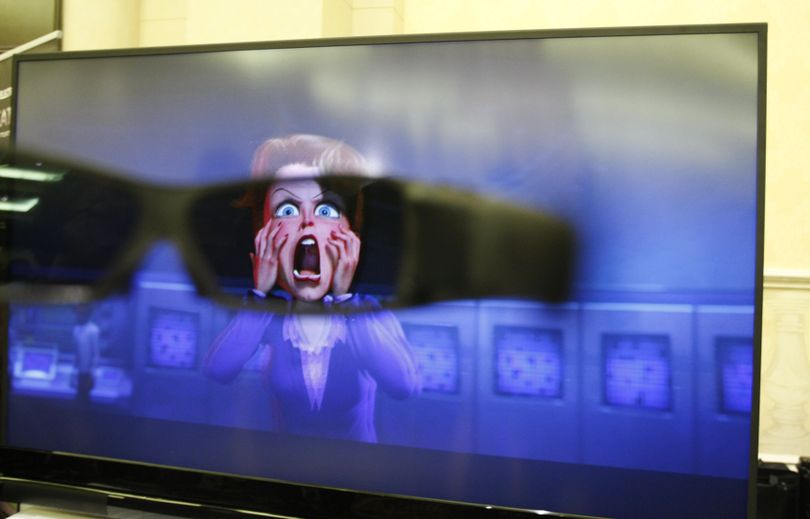Why 3-D movies make some people sick

Mitsubishi 3D glasses are shown in front of an 82-inch Mitsubishi Home Theater TV with 3D-Ready technology at the International Consumer Electronics Show in Las Vegas.Associated Press photos
Nothing can ruin a good movie faster than the sudden feeling that you're about to throw up. But for many people, the images in 3-D or IMAX movies look so real that they mess up the brain's ability to sort out the signals coming in from the senses, and trigger that queasy feeling.
Researchers who study this type of nausea call it cybersickness.
Dizziness, headaches and nausea happen while watching 3-D or IMAX movies because the brain receives conflicting information from the senses, said professor Andrea Bubka, who researches cybersickness at St. Peter's College in Jersey City, N.J. When vivid images play out on-screen, the eyes send signals that tell the brain the body is in motion. Yet inside the inner part of the ear, where the movement of fluid is used to sense motion and balance, no change in the body's position is detected. Karen Rowan More.
Have you ever suffered from cybersickness?
